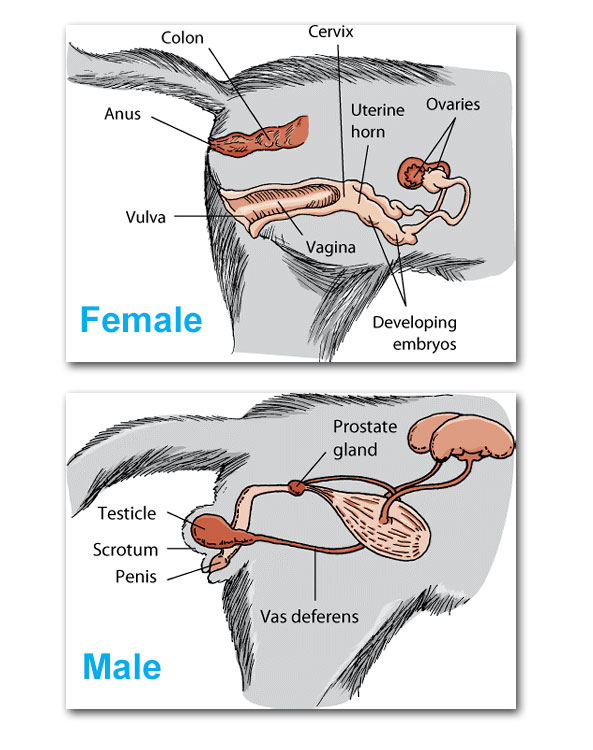Intersex cats are a unique and fascinating subject that many pet owners may not be familiar with. This condition, which occurs when a cat is born with both male and female reproductive or sexual characteristics, can be both intriguing and challenging for cat owners. In this article, we will explore the various aspects of intersex cats, including their biological background, health considerations, and what pet owners should be aware of. With a focus on the latest research and expert insights, this guide aims to provide pet lovers with the knowledge they need to understand and care for intersex cats.
As responsible pet owners, it's essential to recognize the signs of intersex traits in cats and understand the implications they may have on their health and behavior. By delving into the genetics behind intersex conditions, we can gain a better understanding of how these traits manifest and the potential challenges they pose. This comprehensive guide will also highlight the importance of veterinary care and ongoing research in this field, ensuring that you are well-informed and prepared to provide the best care for your intersex feline companion.
In this article, we will cover eight key areas regarding intersex cats, including their definition, causes, health issues, behavioral traits, and the importance of veterinary support. We aim to provide a thorough understanding of intersex cats to help pet owners make informed decisions and foster a nurturing environment for these unique animals.
Table of Contents
- What is an Intersex Cat?
- Causes of Intersex Conditions in Cats
- Health Issues Associated with Intersex Cats
- Behavioral Traits of Intersex Cats
- Diagnosing Intersex Conditions in Cats
- Caring for an Intersex Cat
- Common Myths About Intersex Cats
- Conclusion
What is an Intersex Cat?
Intersex cats are animals that exhibit reproductive or sexual characteristics of both male and female sexes. This condition can manifest in various ways, including ambiguous genitalia or a mix of male and female reproductive organs. While intersex conditions are relatively rare in cats, they do occur and can present unique challenges for both the animal and its owner.
Characteristics of Intersex Cats
Intersex cats may display a range of characteristics, including:
- Ambiguous genitalia
- Mixed secondary sexual characteristics, such as body shape or coat patterns
- Hormonal imbalances that may affect behavior
Causes of Intersex Conditions in Cats
The development of intersex conditions in cats can be attributed to various genetic and environmental factors. Some potential causes include:
- Genetic Mutations: Certain genetic anomalies can lead to the development of intersex traits.
- Hormonal Imbalances: Disruptions in hormone levels during gestation may result in intersex characteristics.
- Environmental Factors: Exposure to certain chemicals or endocrine disruptors during pregnancy can impact fetal development.
Health Issues Associated with Intersex Cats
Intersex cats can face several health concerns that may require special attention:
- Reproductive Health: Intersex cats may have underdeveloped or malformed reproductive organs, leading to complications.
- Hormonal Disorders: Imbalances in hormone levels can result in behavioral issues or health problems.
- Increased Risk of Diseases: Intersex cats may be more susceptible to certain health conditions, requiring regular veterinary check-ups.
Behavioral Traits of Intersex Cats
Intersex cats may exhibit unique behavioral traits influenced by their mixed sexual characteristics. These may include:
- Variations in aggression or social behavior
- Differences in litter box habits
- Changes in vocalization patterns
Diagnosing Intersex Conditions in Cats
Diagnosing an intersex condition in cats typically involves a thorough veterinary examination, which may include:
- Physical examination of genitalia
- Blood tests to assess hormone levels
- Imaging studies to evaluate internal reproductive structures
Caring for an Intersex Cat
Providing proper care for an intersex cat requires awareness and understanding of their unique needs. Here are some tips for caring for these special animals:
- Regular veterinary visits to monitor health
- Ensuring a balanced diet to support overall well-being
- Providing a safe and comfortable living environment
- Being attentive to behavioral changes and addressing any concerns promptly
Common Myths About Intersex Cats
There are several misconceptions about intersex cats that can lead to misunderstandings. Some common myths include:
- Myth 1: Intersex cats are always sterile.
Fact: Some intersex cats may be fertile, while others may not be. - Myth 2: Intersex traits are always visible at birth.
Fact: Some traits may develop later in life. - Myth 3: Intersex cats are unhealthy.
Fact: Many intersex cats can lead healthy lives with proper care.
Conclusion
Understanding intersex cats is crucial for pet owners who wish to provide the best care for their unique feline companions. By recognizing the characteristics, causes, health issues, and behavioral traits associated with intersex conditions, owners can better support their pets. Regular veterinary care and staying informed about their needs are essential steps in ensuring the well-being of intersex cats. If you have any questions or experiences to share about intersex cats, please leave a comment below or share this article with fellow cat lovers.
Thank you for reading! We hope you found this guide informative and helpful. Feel free to explore our other articles for more insights into the wonderful world of pets.
Eminem Height In Feet: Understanding The Rap Icon's Stature
Discovering The Iconic Baywatch Actors: A Deep Dive Into Their Careers And Impact
Sofia Vergara Siblings: A Deep Dive Into Her Family Life


